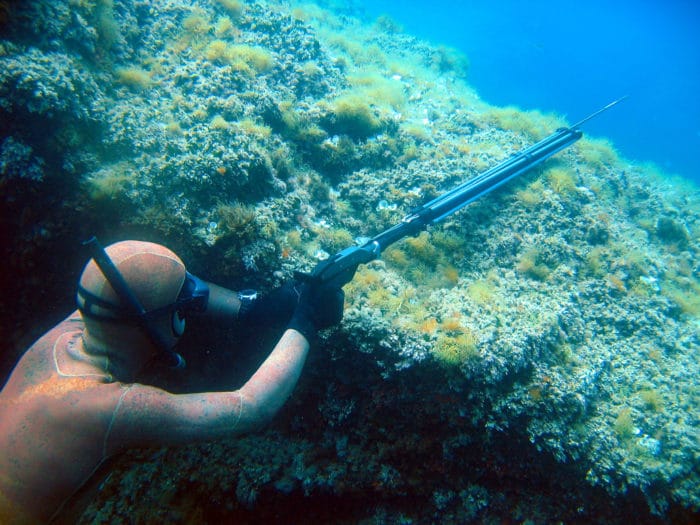
Spearfishing: Everything You Need to Get Started
Spearfishing is an old method of fishing, which is widely used across the globe. Today, it’s still among the top popular and sustainable methods for obtaining fresh and nutritious seafood as it does not require weapons or dangerous equipment that may cause pollution to the water. It’s also a great way to have fun. can be lots of enjoyable!
Before you begin your fishing or searching for a large snapper or bass, make sure you have all needed for your catch. It can be beneficial to speak with other experts on recommended equipment that you can use for a specific location since the gear that you’ll need in the Caribbean might not be suitable for fishing spots for spearfishing in New Zealand or San Diego.
But to give you some idea of what to expect of what you need, here are the essential equipment and tools you’ll require to enjoy a safe spearfishing experience.
Basic Spearfishing Gear
Flatlay of fish on spearfishing equipment
Anyone who is a professional spearfisher or “spear” would know that getting the best gear for spearfishing is vital to ensure your safety and your success. Below, you’ll find the best basic equipment for spearfishing you might need to buy for your first time spearfishing. Also, you can find suggested brands that are popular and highly suggested by other spearos.
When it comes to the gear, the best gear that you can find online would be from our spearfishing gear store, they hea
Fishing License
Spearfisher in green emerald sea water
Although technically not part of the fishing equipment you own it is possible to obtain a valid sportfishing license prior to hitting the water with your hunting equipment. In most states, you can get fined for fishing without a license, and you can even face prison when you hunt (and killing) protected species.
Most of the time, you’ll want to check with your local government agencies, lifeguards as well as fishermen’s supply and dive shops, and other experienced spearos for information before doing anything.
Weapon of Choice
Lionfish Pole Spear
This is your main tool for spearfishing: Hawaiian slings, pole spears, or a speargun. Hawaiian pole spears and slings each require that you be very near to your fish, but they differ in that the sling’s sling’s bands will usually remain in your palm while the pole spear will leave your hands entirely when you apply it to spearing a fish. For spearguns, they differ in structure. Some are manually launched with bands or slings, and other spearguns are powered by gas or air (pneumatic).
If you opt for a speargun, then you’ll have to consider the transparency of the water and the size of the fish that you’ll hunt before deciding on the type of speargun to buy. Low-visibility areas would require you to make a move closer and thus shorter spearguns more ideal. And unless you’re hunting for a larger fish, you’ll not necessarily require thick long shafts or air-driven spearguns. Most of the time, if it’s only a small, multiple-band speargun with extra reach the possibility of getting away by using rolling guns.
Spearguns are available in pretty much every equipment store which sells spearfishing gear. JBL makes good spearguns for beginners and you should check out the Woody Sawed Off Magnum Spear Gun ($309.95) from JBL if you’re looking for a weapon that’s low-maintenance, simple to operate and is a real punch. If you’re looking for pole spears instead, you may consider the five-pronged Lionfish Pole Spear ($26.95) or the JBL 6′ Breakdown Travel Pole Spear ($119.95).
Spearfishing Wetsuits and Rash Guards
One of the most important equipment you’ll require prior spearfishing – or diving, for that matter–is a wetsuit. There are many kinds and types of wetsuits to choose from, based on temperature of the water and the underwater activity.
For spearfishing, you’ll want to look at the suit’s thickness especially when diving in warmer environments. It’s generally recommended to opt for a suit that’s not thicker than 1.5mm or less, unless you’re performing deep dives in colder waters. If you’re unlikely to perform deep dives or being in the water for extended durations of time, then you may be able to do so by wearing a rash guard.

